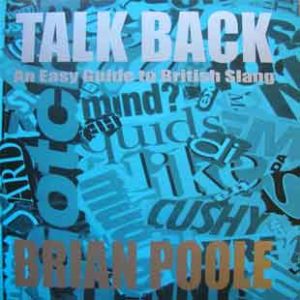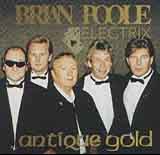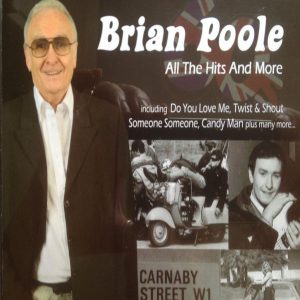Description
An excerpt from the book…
In 1957 along with two of his school friends he started the now legendary Tremeloes and has made his living in show-business till the present day. With his band the Tremeloes, Brian Poole dominated the music charts in the 60’s with Top Ten and No. I hits such asDo you Love Me Twist & Shout, Candy Man, Someone Someone and many more.
This book, Talk Back, is a light-hearted but thorough look at the meanings and derivations of the hundreds of words and phrases that go to make up the rich vocabulary of British slang. It is guaranteed to bring a smile to the faces of all who love what is certainly the most colourful and versatile language in the world.
There developed in London especially, East London in the forties, a whole new way of speaking. Cockney back slang was rife and although it was spoken slightly differently by the real cockneys, it still lives today. When saying it was spoken slightly differently, I mean that it has developed over the years to be as we know it today.
For instance: “Look at her Barnet Fair”.
Barnet Fair would be shortened to Barnet and so the sentence or phrase would be “Look at her Barnet” – in other words, “Look at her/his hair”. As mentioned in the book, some words have been handed down through the generations. These keep the same sounds, even if sometimes, they do not conform to the basic rules. One of these rules is that in many cases the sound of the original word is kept when speaking it in back slang.
For instance: TIME would be EMIT, pronounced EE-MITE
* This denotes phonetic pronunciation which is handed down and does not always conform to the rules.
You can talk secretly or even swear in back slang without being caught out. Here are some examples of back slang:
1) HAVE A LOOK – EVAH A KOOL, pronounced – EE-VATCH A KOOL *
These words are always used to draw attention
Consonants are always sounded fully – H would spell as AITCH or ATCH and E would be EE.
2) RED NOSE – DER ESON, pronounced – DER EESON *
The word RED said backwards becomes DER but the E would have the U sound. The word NOSE simply becomes consonant EE and SON.
3) MAN – NAM, pronounced – NAM
4) WOMAN – NAMOW, pronouced – NAMMOW




